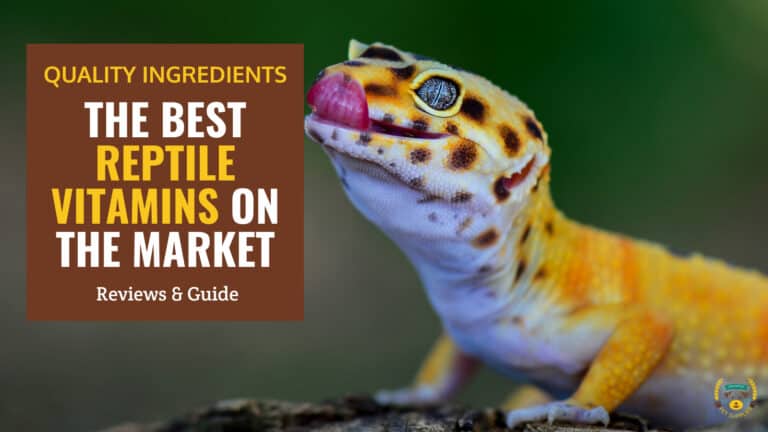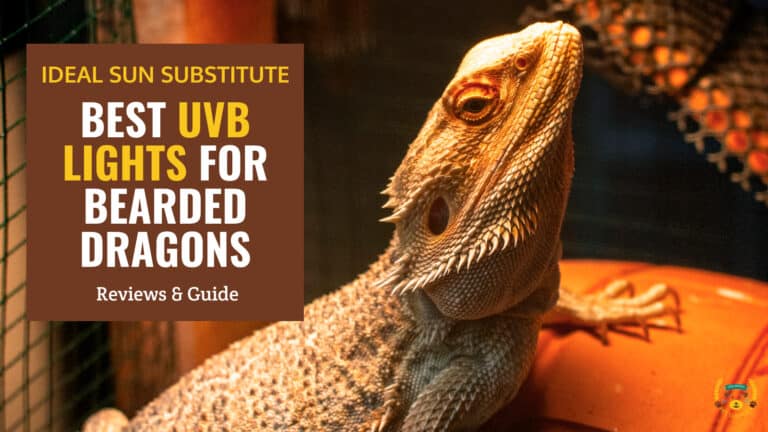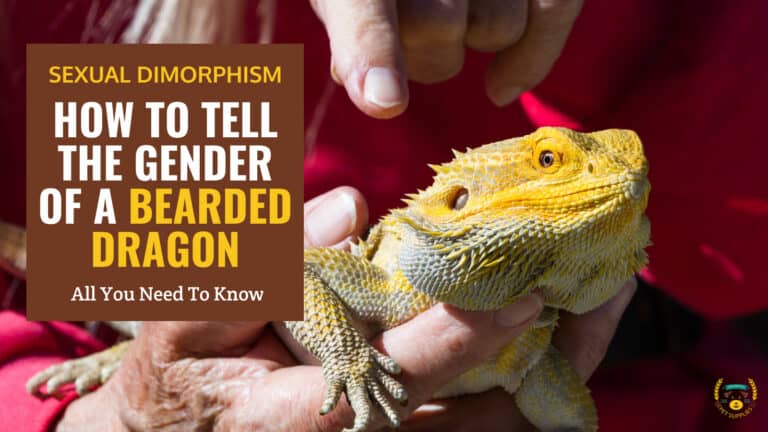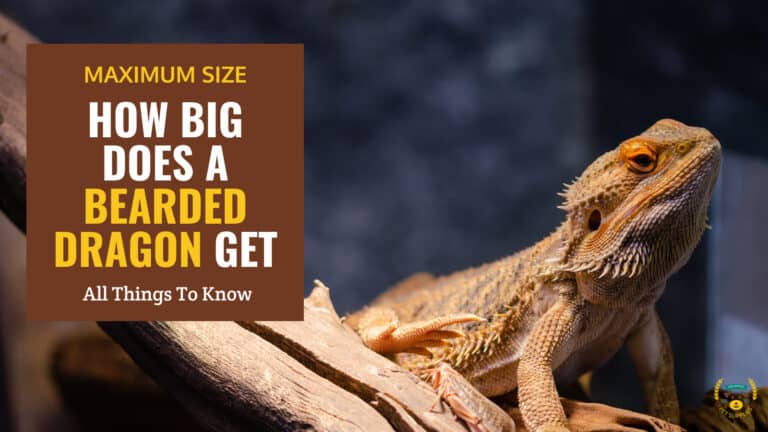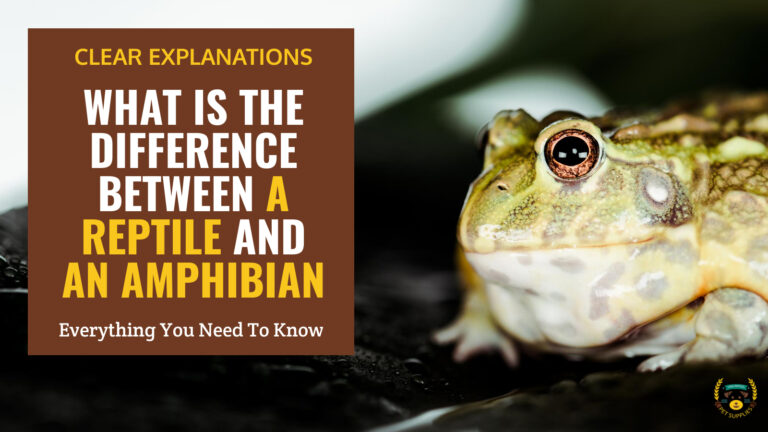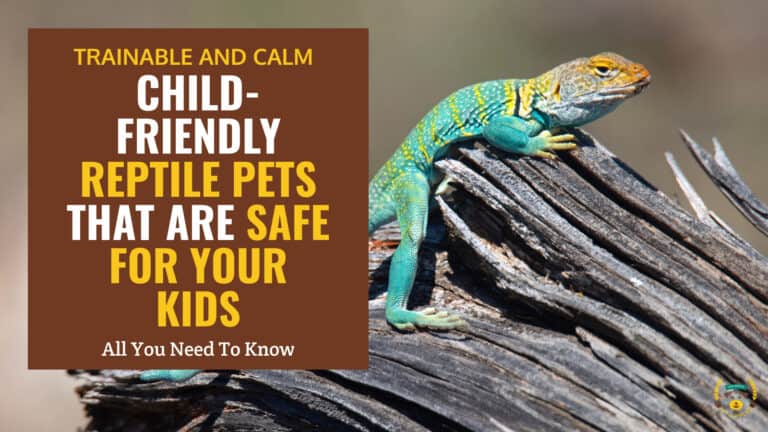How Long Does a Bearded Dragon Live?
Last updated: February 8, 2024
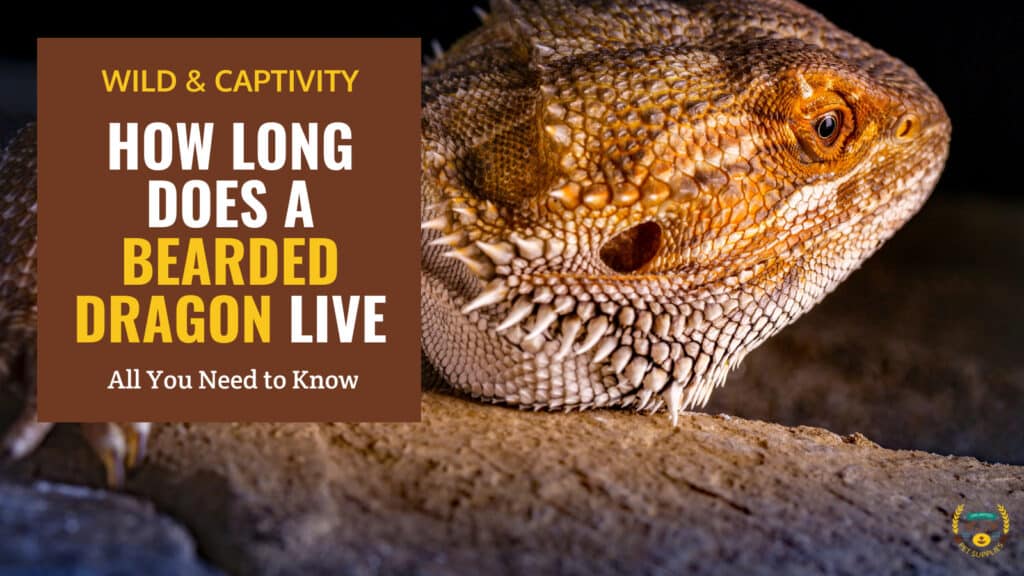
Summary
- Bearded dragons live 5-8 years in the wild, but captive dragons average 8-15 years with proper care. Some exceed 18 years.
- Optimizing habitat, balanced diet, vet care, gentle handling, and low stress levels boosts longevity.
- Annual vet exams, quarantines, UV lighting, proper temperatures, varied nutrition, supplements, exercise, and socialization improve lifespan.
- Gentle daily handling helps with bonding but avoid kissing due to salmonella risk.
- With attentive husbandry throughout all life stages, bearded dragons can thrive past 15 years in captivity.
Bearded dragons are popular pet lizards known for their docile nature, unique appearances, and relative ease of care. With proper husbandry, these personable reptiles can live 8 to 15 years in captivity. Some exceptional bearded dragons have even survived over 18 years with meticulous care and a bit of luck.
In the wild, bearded dragons live between 5 to 8 years on average. Their lifespans are considerably shorter outside of captivity due to harsh environmental conditions, food scarcity, predators, and lack of veterinary care. Still, wild bearded dragons are well-adapted to survive in Australia's challenging desert habitats.
This article provides an in-depth look at the factors that impact bearded dragon lifespans. It covers typical longevity in the wild versus captivity, determining a bearded dragon's age, different life stages, and key considerations for optimizing your pet's health and welfare throughout adulthood. With attentive husbandry, your bearded dragon can thrive and live a long, high-quality life as part of your family.
- 1) Bearded Dragon Lifespan in the Wild - Typical Lifespan
- 2) Bearded Dragon Lifespan in Captivity - Typical Lifespan
- 3) Factors Affecting Bearded Dragon Lifespan
- 4) Determining Bearded Dragon Age
- 5) Key Bearded Dragon Life Stages
- 6) What Can You Do to Improve Your Bearded Dragon's Lifespan?
-
7)
Frequently Asked Questions
- 7.1) How Long Do Pet Bearded Dragons Live?
- 7.2) Do bearded dragons live longer in captivity or the wild?
- 7.3) What causes bearded dragons to die early?
- 7.4) How can I tell how old my bearded dragon is?
- 7.5) Do male or female bearded dragons live longer?
- 7.6) Do bearded dragons like to be held?
- 7.7) Can I kiss my beardie?
- 7.8) Do bearded dragons bite hurt?
- 7.9) How often should I play with my bearded dragon?
- 8) Final Thoughts
Bearded Dragon Lifespan in the Wild - Typical Lifespan
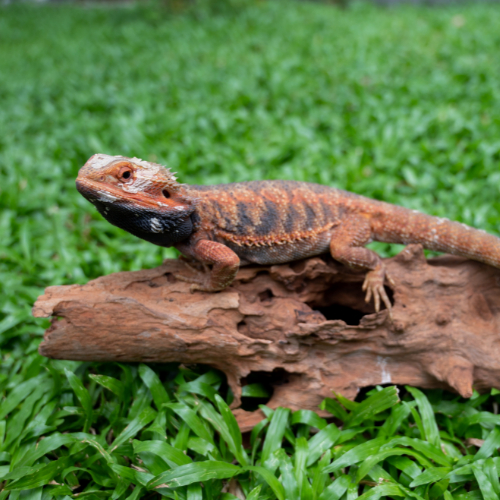
In the wild, bearded dragons typically live 5 to 8 years. Their harsh native habitat in Australia's deserts and arid woodlands results in a much shorter lifespan compared to captive dragons. The lack of consistent food sources, risk of predation, and extreme weather conditions all contribute to the wild bearded dragon's abbreviated lifespan.
Differences Between Males and Females
There is some evidence that male bearded dragons live slightly longer than females in the wild, likely due to differences in reproductive roles and behaviors. However, data on wild bearded dragon longevity and gender differences is quite limited.
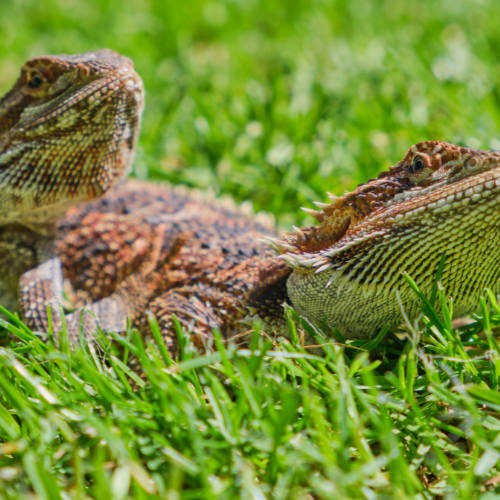
Males may roam larger territories and avoid the extra energy expenditure from egg production in females. But overall, the harsh wild habitat curtails longevity for both genders compared to their potential in captivity.
Most wild bearded dragons perish before reaching elderly age due to the many risks and stresses of their native environment.
Determining your beardie's gender is a helpful guide for those curious about their bearded dragon's sex. This article explores the physical characteristics and behaviors that differentiate males and females, empowering you to confidently identify your pet's sex
Bearded Dragon Lifespan in Captivity - Typical Lifespan
With proper care and husbandry, pet bearded dragons generally live 8 to 15 years. The record lifespan for a captive bearded dragon is 18 years, demonstrating their potential longevity when given ideal conditions.
If you're wondering about bearded dragon size and growth throughout their lifespan, you can check our guide on how big your bearded dragon will get.
Key Factors for Longevity
Several key factors enable bearded dragons to reach a long lifespan in captivity:
- Proper habitat size and conditions like appropriate ambient temperature, basking area temperature, humidity level, choosing the right UVB light, and hiding places.
- A balanced, vitamin-rich nutrition with a variety of vegetables and live feeder insects.
- Regular veterinary checkups and care to diagnose and treat any health issues early.
- A low-stress environment with gentle but regular handling and interaction.
By providing the right habitat, diet, veterinary attention, and gentle care, bearded dragon owners can maximize their pet's lifespan and enjoy their company for over a decade in many cases. The average 8 to 15-year lifespan shows just how much potential bearded dragons have for long, healthy lives when given what they need to thrive in captivity.
Factors Affecting Bearded Dragon Lifespan
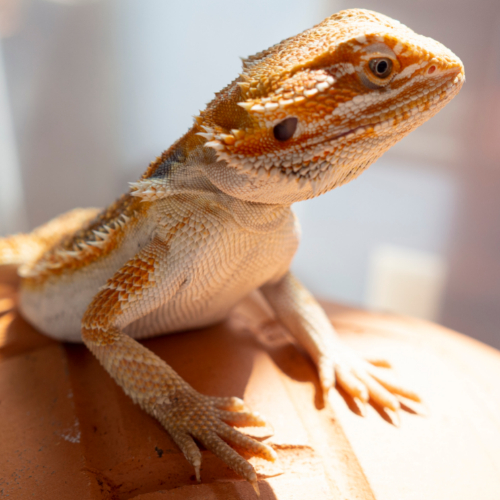
There are multiple factors that affect and determine a Bearded Dragon's lifespan. The following are the main ones:
Genetics
Some color morphs and breeds, like Red and Citrus dragons, tend to be hardier with greater longevity. Larger Pogona species, such as the Central bearded dragon, also typically outlive smaller Pogona species.
Genetics plays a key role in lifespan.
Habitat Conditions
Enclosure size, ambient and basking temperatures, humidity level, UVB exposure, and other habitat factors significantly impact bearded dragon health.
Proper conditions reduce stress and disease risk, eventually allowing captive Bearded Dragons to live (much) longer.
Nutrition
Baby dragons need more insects while juvenile and adult dragons require more leafy greens and vegetables.
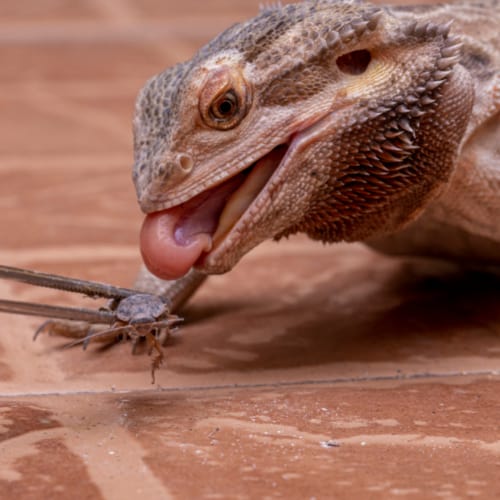
Proper amounts of calcium, vitamin D3, and well-rounded nutrition are vital for the growth and overall well-being of these magnificent creatures.
Husbandry
Cage cleanliness, substrate choice, gentle handling techniques, and socialization all affect stress levels and disease susceptibility. Taking good care of your beloved pet will certainly help it have a happier and longer life.
Health Issues
Parasites, respiratory infections, mouth rot, as well as other health problems must be quickly diagnosed and treated by a qualified reptile vet. Failing to treat any health issues as soon as possible can cause serious health problems for your pet.
Stress
Chronic stress from poor handling, inadequate habitat, malnutrition, or other factors weakens immunity, which in turn can cause all sorts of problems and reduce the pet's lifespan.
Do your best to manage stress the best you can in order to boost your Bearded Dragon's longevity. This can be achieved by taking care of all the factors mentioned above.
From genetics to habitat to nutrition and more, many interconnected factors shape bearded dragon lifespan. By optimizing these aspects of care, owners enable their pet to reach its full longevity potential.
Determining Bearded Dragon Age
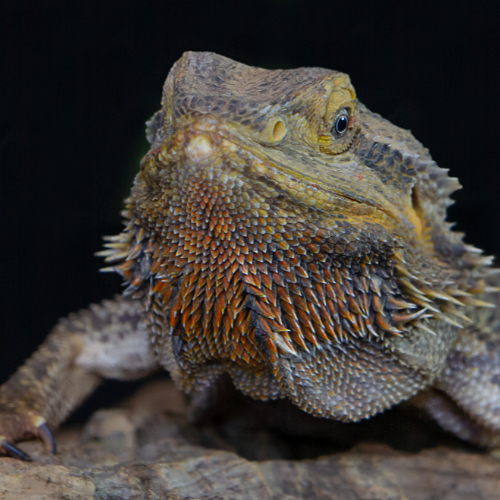
Figuring out a bearded dragon's age isn't always straightforward. When they're young, you can get a rough estimate based on size. But length becomes less reliable after about one year old when their growth starts slowing down.
Once the adult size is reached, factors like weight, sexual maturity, skin texture, and activity levels help determine the age. An adult dragon who is getting plump and mellow is likely a senior. One who remains lean and active into adulthood still has a youthful energy.
Growth rates also vary wildly based on care. With ideal nutrition and habitat, some dragons hit full adult length by a year old. Others who experienced early hardships like malnutrition may take over 18 months to fully mature.
So, while size provides a ballpark through the first year, it takes a more nuanced reading of physical condition, energy and behavior to estimate age after that. Adult bearded dragons don't come with a born-on date stamped on their tails. But with time and observation, their age reveals itself through the many ways it shapes their bodies and actions.
Key Bearded Dragon Life Stages
Even though, as stated above, determining a Bearded Dragon's age is not very easy, especially after the first year, there are many life stages it goes through; they are the following (with rough age estimates):
Egg/Embryonic Stage
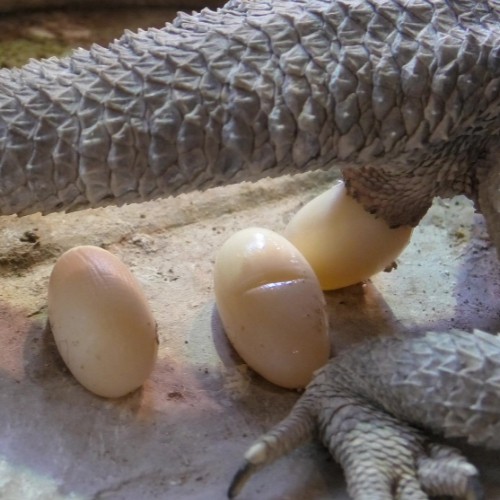
After breeding, the female bearded dragon lays a clutch of 12-40 eggs in the nesting site she prepared. The eggs then embark on an incubation period lasting 55-75 days depending on temperature. A proper incubation temperature of 80-85°F is key for normal embryonic development: Too low and development is stunted; too high and deformities can occur.
During incubation, the embryos grow from small clumps of cells into fully formed hatchlings ready to emerge. The incubation period is critical for healthy development and hatching success.
Hatchling Stage
Newly hatched bearded dragons enter a rapid growth phase, more than doubling in size within the first 3 months. As juveniles under 12 months old, they should be fed 3-5 times daily with nutritious, calcium-dusted insects like crickets, roaches and worms making up 80% of their diet.
Frequent feeding fuels their speedy growth at this stage. UVB exposure is also critical to metabolize calcium for proper bone development. With diligent care, they can reach 15-18 inches long within their first year.
Juvenile Stage
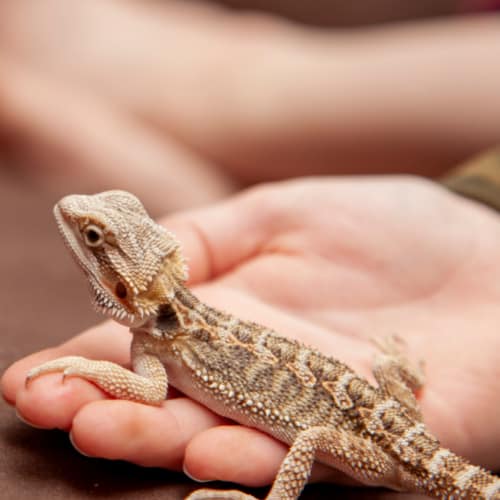
Around 12-18 months old, bearded dragons shift into a juvenile stage with slowed growth. Their appetite decreases as feeding shifts gradually from insects to more leafy greens and veggies. But calcium and vitamin needs remain high for the next 6 months.
Handling and socialization should continue to build trust and lower stress. By 18 months, they reach near full adult size though growth plates may still be maturing.
Adult Stage
By 18-24 months old, bearded dragons transition into their full adult stage at the apex of health and vigor. Feeding decreases to 1-2 times daily with greens making up 50-80% of diet. They reach their peak breeding age and fertility.
Regular checkups, a balanced diet and exercise keep adults thriving. An adult dragon's enclosure size should be at least 50 to 75 gallons (75 to 125 gallons for Dragons that are over 20 inches long) to enable healthy activity. With proper care, adults remain energetic and healthy for many years.
Senior Stage
Around 7-10 years old, bearded dragons gradually enter their senior years. Weight loss, slowed movement, and increased time basking can signal aging. Regular vet checkups help identify developing health issues like cancer or heart disease requiring treatment.
Adjustments to diet, habitat and monitoring help senior dragons continue thriving into old age. With attentive care, they can live healthy and active lives.
What Can You Do to Improve Your Bearded Dragon's Lifespan?
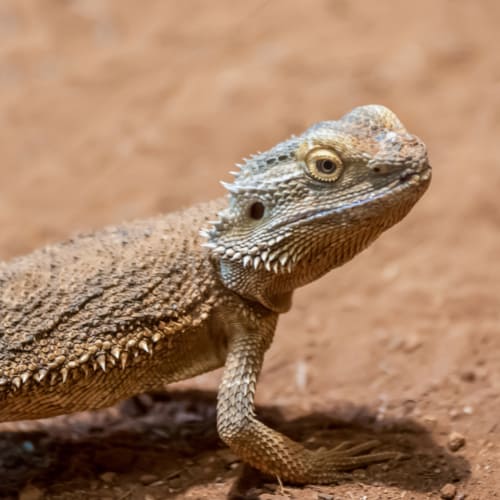
There are some things you can do to help your pet(s) have a better and longer life. Doing the following will provide a comfortable, stress-free living environment where your bearded dragon can thrive into old age:
- Schedule annual vet exams to catch any health issues early. Complete fecal tests and bloodwork to monitor parasites, organ function, etc.
- Follow age-appropriate feeding guides. Overfeeding can lead to obesity, fatty liver disease, and other issues. Offer a variety of vegetables.
- Quarantine new reptile arrivals for at least 3-6 months, with vet testing, before introducing them to other pets. This prevents transmitting diseases.
- Providing your reptile pet with quality vitamin supplements is crucial to supporting their health and well-being. Reptiles need vitamins and minerals just like any other animal.
- Use fresh, nutritious insects like Dubia roaches. Avoid dehydrated insects that lack nutrients. Dust insects with calcium and multivitamins.
- Examine your bearded dragon frequently for signs of illness or injury. Catch problems early.
- House dragons separately unless breeding. Crowding causes stress. You might be interested to check this guide about why your bearded dragon may be avoiding food and how to address it effectively.
- Use large enclosures: To create the ideal living space for your bearded dragon, it's essential to provide ample room and a variety of enriching elements. Large enclosures, at minimum 2-3 times their length, can facilitate healthy activity. Additionally, consider the ultimate bearded dragon flooring choices for your pet's well-being in this guide.
- Replace UVB bulbs every 6 months per manufacturer recommendations for proper output.
- Provide proper lighting, including UVB, and temperature gradients in the habitat. Monitor temperatures daily. Never use heat mats that can cause burns.
Frequently Asked Questions
To ensure you know everything there is to know about Bearded Dragons' lifespan, we have compiled a list of the most frequently asked questions and provided answers.
How Long Do Pet Bearded Dragons Live?
With proper care, bearded dragons live between 8 and 15 years on average. The record confirmed lifespan is over 18 years in captivity.
Do bearded dragons live longer in captivity or the wild?
Bearded dragons live significantly longer in captivity, averaging 8-15 years, compared to just 5-8 years (often in the wild.
What causes bearded dragons to die early?
Causes of premature death in Bearded Dragons include poor husbandry, malnutrition, untreated diseases, and chronic stress.
How can I tell how old my bearded dragon is?
As mentioned earlier, size estimates young dragons' ages. In adults, factors like energy, weight, skin elasticity and vet exams can help determine age.
Do male or female bearded dragons live longer?
There is very little evidence of major lifespan differences between sexes. Both can exceed a decade with proper care. It seems, however, that on average, male dragons live longer than females.
Do bearded dragons like to be held?
Yes, bearded dragons can enjoy and show signs of affection when being held by their owners. Though not as demonstrative as some pets, bearded dragons often remain calm and content when handled gently. With regular interaction, they become accustomed to their owners and can seek out their touch.
While not overtly social creatures, bearded dragons do bond with their caretakers in their own subtle way when socialized from a young age. With patience and gentle handling, an owner can develop a special trusting relationship with their bearded dragon.
Can I kiss my beardie?
No, it is not recommended to kiss bearded dragons. While they can carry salmonella bacteria harmless to them, it can potentially spread to people and make them ill.
As reptiles, bearded dragons do not show affection through kisses like mammals. It is best to avoid kissing them or having them in spaces where food is prepared and consumed.
Enjoy your bearded dragon through safe handling, holding, and caring without direct kisses or snuggling.
Do bearded dragons bite hurt?
Yes, bearded dragon bites can be painful, though they rarely bite. Their sharp teeth can cause bites to bleed or swell slightly.
However, they bite for specific reasons like feeling threatened or mistaking fingers for food. With gentle handling and care, bites are usually avoidable. Overall, their bites are not medically significant provided the wound is cleaned. While sharp, their teeth are small so serious injury is very unlikely.
How often should I play with my bearded dragon?
It is recommended to interact with and handle your bearded dragon daily. Frequent gentle handling helps socialize them and get them accustomed to their owner. It also reduces stress during care activities like bathing and tank maintenance.
Aim for at least 10-15 minutes of supervised handling per day once they are accustomed to it. More frequent handling when they are young helps them become tame as adults. Just be sure to watch for signs of stress like darkened beard or body color.
Final Thoughts
Bearded dragons have the potential to live over a decade when properly cared for in captivity. By optimizing their habitat, nutrition, veterinary care, and gentle handling throughout their different life stages, you can enable your bearded dragon to thrive into old age.
While wild bearded dragons face harsh conditions and live on average 5-8 years, captive dragons can surpass 15 years with diligent husbandry. Their lifespan is shaped by the quality of their environment, diet, genetics, and healthcare. Attentive owners willing to provide for a bearded dragon's needs through all life stages - from hatchling to elderly - will find the experience deeply rewarding.
If you still have any questions or comments, please contact us via email or in the comments section below.

